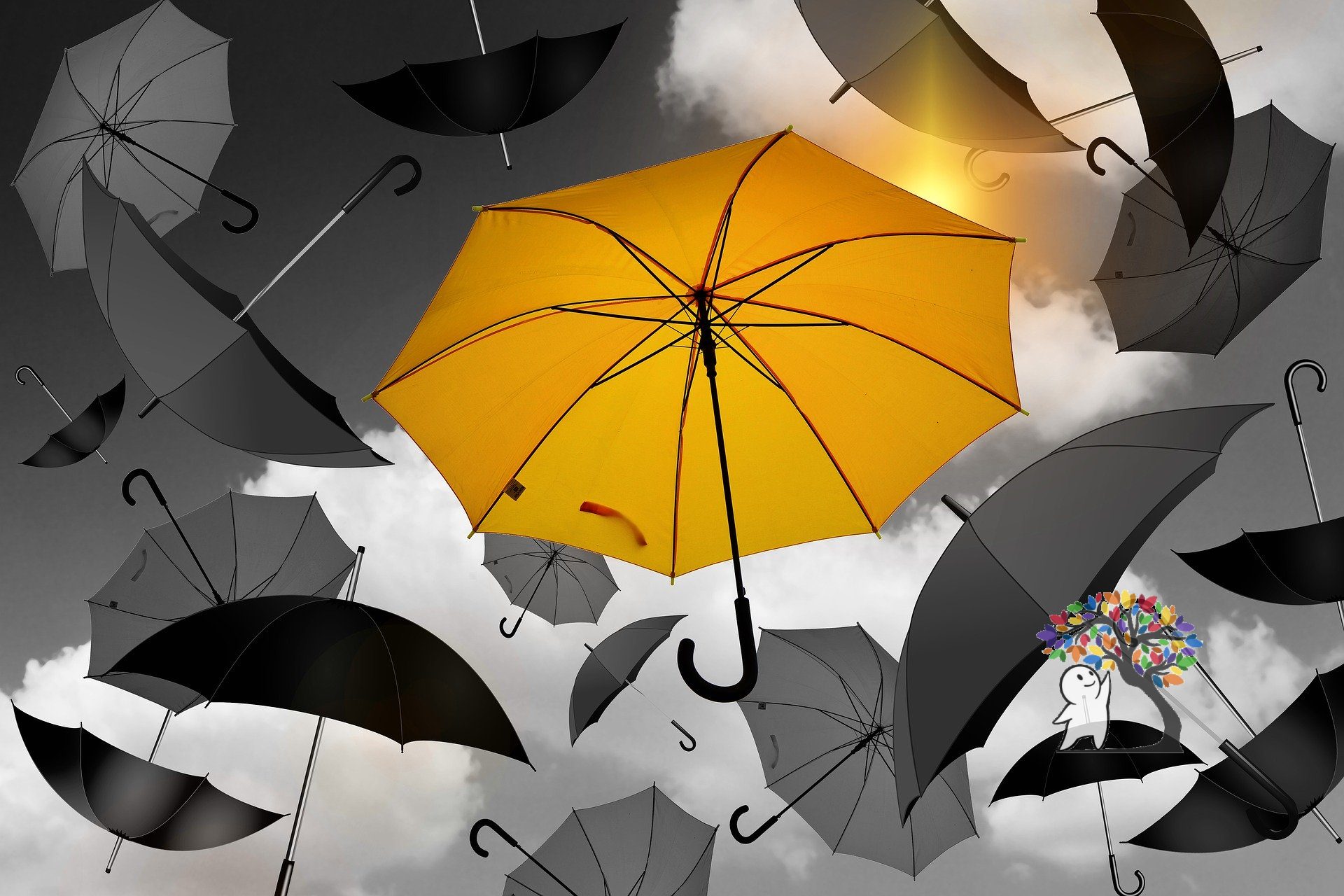Lessons in Life People Learn Too Late

As obvious as it is to say, life is hard. And it doesn’t come with a how-to guide. Each new day is full of unknowns and you have to manage those unknowns to the best of your current abilities. You go through days making mistakes and figuring things out yourself. It can get overwhelming.
Have you ever wished that you had all the answers in life and could use that knowledge to navigate you through life’s ups and downs?
Even though you might learn life lessons over time on your own, here are a few things that we’re already sure about, and all you have to do is work on understanding and internalizing them. Hopefully becoming aware of them now can help you move through this part of your life a little bit more easily.

1. Gratitude helps to attract more things to be grateful for
Many people speak about how beneficial keeping a gratitude journal has been for them. It might be because when you practice noticing the good things it makes you more aware of other positives. Or it could be some cosmic or spiritual force at work. But whatever you attribute it to, it’s something worth working on. We could all use more positives in our lives, and much of that starts with a grateful attitude.
2. Approach challenges with the attitude that you’re already successful
Facing challenges isn’t easy, but life is full of them. Things like starting a new job, moving to a new city, or even learning a new skill present us with such challenges, but fear can make them difficult. At the base of that fear is often the fear of failure. A survey taken by Linkagoal concluded that a third of Americans are afraid of failing. To combat this, visualize your success. Trick your brain into thinking you’re confident and seeing your potential to get where you want to get. Focusing on that will reduce your fears.

3. Being prepared is always a good idea
Everyone’s probably heard the generic advice to “save for a rainy day” because you never know what life’s gonna throw at you. It’s unpredictable, and while that’s part of what makes it fun, it also brings certain stress. Thinking ahead is actually a proven method to reduce anxiety, though. Because the common feature exhibited in anxiety is anticipation (Grupe, 2013), doing what you can to prepare for the future is important. Try making backup plans, especially if you’re feeling particularly anxious about something.
4. Don’t feel guilty about relaxing
In this productivity-driven world, people often romanticize working hard every minute of every day. Working hard and endlessly is praised constantly. But working yourself to the point of burnout isn’t healthy, and more than that, it isn’t necessary. An article by Tony Schwartz posted in the New York Times explains that we have the ability to recharge our energy stores simply by relaxing and that doing so is more valuable than the alternative. Basically, take some time for yourself and don’t beat yourself up about it!

5. Don’t compare your journey to someone else’s
Feeling behind in life seems to be common these days. You might have graduated from college but haven’t settled into your dream career yet. Or maybe you feel like everyone around you is in serious relationships and you aren’t. No matter what it is specifically, comparing your situation to someone else’s or to an arbitrary societal norm makes you feel bad. And “in time its consequences get progressively more damaging” (Psychology Today). We forget that there’s no timeline we have to live our lives by. By working to free yourself from these comparisons allow you to flourish in your own way and in your own time, and more than that, feel happier along your journey.
6. Change isn’t necessarily a bad thing
Like it or not, change is a constant in life. And avoiding it is to avoid living. It is scary to try something new, but the fact of the matter is that we have to if we want to grow. It might help to create a plan, learn to cope with stress, and reach out for help and support when you need it. It might also help to keep the benefits of facing change, like gaining new perspectives and bringing forth new and exciting opportunities. So take a deep breath, put on a brave face, and go for it!
7. You are in charge of your own happiness
A column by Regina Brett published in an Ohio newspaper once featured an article about what a 90-year-old woman had learned in her many years. The one lesson that immediately struck a chord with me was that we can’t rely on external things to come along and make us happy; we have to actively choose it over and over again. “No one is in charge of your happiness except you,” she was quoted. Use that responsibility wisely. Do things that bring you joy. Surround yourself with good things. Smile in the mirror, even when you don’t feel like it. You’re in control.

8. Your health and happiness are the most important things in your life
I was actually lucky enough to learn this lesson fairly early on in my life. In high school, I struggled with an eating disorder that left me not only physically ill but devoid of happiness. I was eventually hospitalized, finally in a safe place to fight to get my life back. But I was overwhelmed because I was missing school and had to give up responsibilities. It took a great deal of effort to realize that my health and happiness were more important than the big exam I had or the concert I had to play in. If I wasn’t healthy, I simply couldn’t focus on other important areas of life. And if I wasn’t happy, I couldn’t give anything else my all. I know it isn’t always that simple, but try to remember to focus on these keys to life.
9. Don’t let other people influence your mood
Personally, I struggle with this. If someone is rude to me, I tend to dwell on it, which only leads to me feeling bad about myself. But the reality is that maybe that person was having a bad day, absorbed with their own problems, living in their own head. In the vast majority of cases, what other people do has nothing to do with you, so why waste time obsessing? It’s easier said than done, but remember that you don’t have to let the insignificant actions of other people bother you. You alone have power over how you feel.
10. Be unapologetically you
Have you ever wished you could be like someone else? A friend who seems to have it together, a social media influencer who seems to make everything look easy, a celebrity who’s living life in a way you can’t imagine? It’s a common thing in all of us. We fall prey to low self-esteem and then get stuck trying to change ourselves. But being proud of yourself and owning your uniqueness is so much more rewarding. A study by Guler Boyraz in 2014 concluded that those who were more authentic to themselves showed greater life satisfaction at a later point. It might be scary to open up and show your true self to the world, but remember: there’s only one you, and that’s the person this world needs you to be

Life has so much to teach us. Sometimes we just have to learn things ourselves, but utilizing advice and incorporating it into your current lives may help you feel more confident and better prepared.
What lessons have you learned already, and which ones do you think you can benefit from trying to learn?
Citations:
Boyraz, Güler, et al. “Authenticity, Life Satisfaction, and Distress: A Longitudinal Analysis.” Journal of Counseling Psychology, vol. 61, no. 3, 2014, pp. 498–505., doi:10.1037/cou0000031.
Brett, Regina. “Regina Brett’s 45 Life Lessons and 5 to Grow On.” Cleveland, 28 May 2006, www.cleveland.com/brett/blog/2006/05/regina_bretts_45_life_lessons.html.
Grupe, Dan W., and Jack B. Nitschke. “Uncertainty and Anticipation in Anxiety: an Integrated Neurobiological and Psychological Perspective.” Nature Reviews Neuroscience, vol. 14, no. 7, 2013, pp. 488–501., doi:10.1038/nrn3524.
Linkagoal. “Linkagoal.” Linkagoal, 26 Oct. 2016, blog.linkagoal.com/2015/10/research-reveals-fear-of-failure-has-us-all-shaking-in-our-boots-this-halloween-1-in-3-admit-they-are-terrified-of-failure.
Schwartz, Tony. “Relax! You’ll Be More Productive.” The New York Times, The New York Times, 9 Feb. 2013, www.nytimes.com/2013/02/10/opinion/sunday/relax-youll-be-more-productive.html.
“The Epidemic of Insecurity.” Psychology Today, Sussex Publishers, www.psychologytoday.com/us/blog/understand-other-people/201504/the-epidemic-insecurity.



Responses